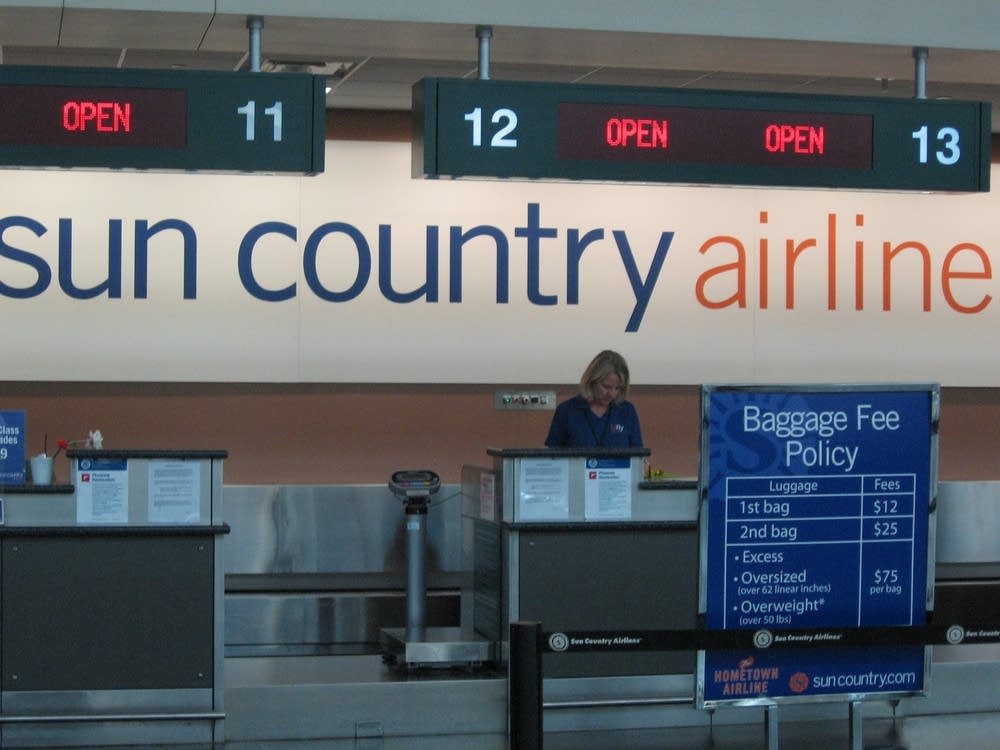
It’s hard not to think that Sun Country’s latest problems are a sign that the once hometown airline is descending into the abyss of no-frills airlines, which is notable only because Sun Country was once known for customer service.
The airline is going in a different direction now and so far the results are predictable.
Over the weekend, the airline stranded passengers in Los Cabos, Mexico, because the flying season has ended for the airline there and a blizzard here prevented any flights from landing.
What are passengers to do? They’re on their own. The airline, in a classic example of corporate gobbldynonsense, said it’s doing everything it can, except giving enough of a rip to go get its passengers.
Thank you for checking in and giving us a chance to weigh in. The April snow storm has absolutely slammed our MSP operations (and others—we understand there were 495 MSP cancellations yesterday); we had 25 cancellations yesterday and 15 today, plus five diversions and extensive delays due to the airport being closed for nine hours to all operations. The airport disruptions are continuing today; we hear there are 227 cancellations already.
Our agents are working around the clock, some of whom stayed past their shifts to work overnight in the call center, to provide the best service possible to our passengers impacted by all this. The two most challenging recovery situations are definitely our Los Cabos and Mazatlan flights. As soon as we realized we would be unable to re-accommodate these passengers we let them know of the situation and gave them a full airfare refund to make alternative arrangements. For all other flights, we are re-accommodating passengers to get them safely on their way as soon as possible.
An April snowstorm is an awful way to start or end a getaway and we apologize to everyone inconvenienced by the severe weather. We very much appreciate our customers’ patience and are doing everything we can to help them.
The airline, once hometown owned, is being sold to a hedge fund and will fly “more efficiently,” its overlords say.
This is what efficiency looks like.
As operations as MSP get back to normal, some travelers trying to get home to Minnesota say Sun Country stranded them in Mexico. An explanation from the airline, next at 10 p.m. on @KSTP pic.twitter.com/Oxm66uhBiN
— Kirsten Swanson (@KirstenKSTP) April 16, 2018
And last night’s 60 Minutes report on Allegiant Airlines, which serves St. Cloud, is what efficiency looks like, too.
It’s also what the Federal Aviation Administration looks like these days, too, according to the report.
It has to do with a change of policy. Over the last three years, the FAA has switched its priorities from actively enforcing safety rules with fines, warning letters and sanctions-which become part of the public record-to working quietly with the airlines behind the scenes to fix the problems. It may well be what’s allowed Allegiant to fly under the radar.
But Loretta Alkalay, who spent 30 years as an FAA lawyer, says it does not absolve the agency of its responsibility to ensure airline safety.
Steve Kroft: The FAA’s job is to enforce airline safety, isn’t it? Isn’t that part of its job?
Loretta Alkalay: Yes. When the FAA knows that an airline has a problem, or there are sufficient red flags, it is supposed to step in and protect the public because airlines have to operate, by statute, to the highest level of safety.
Steve Kroft: And there are red flags here, in the case of Allegiant.
Loretta Alkalay: Yes, there’s definitely red flags.
Jude Bricker, Sun Country’s president and CEO who is remaking Sun Country into a low cost, no-frills airline, previously was the chief operating officer and executive vice president of Allegiant Airlines.
